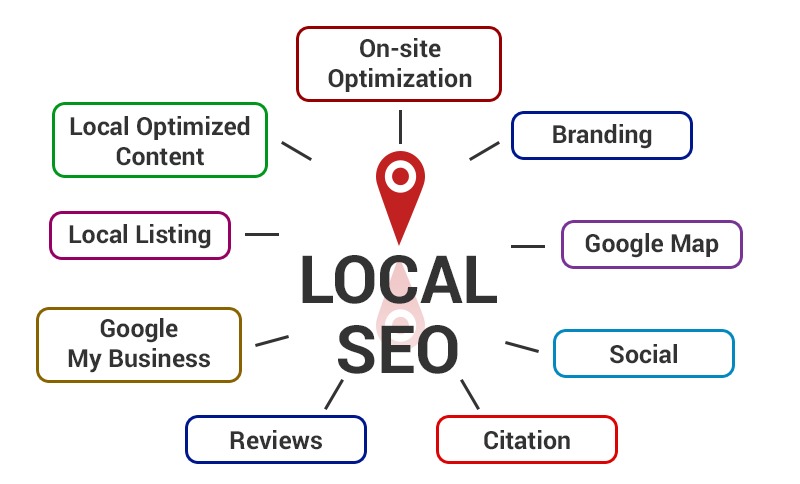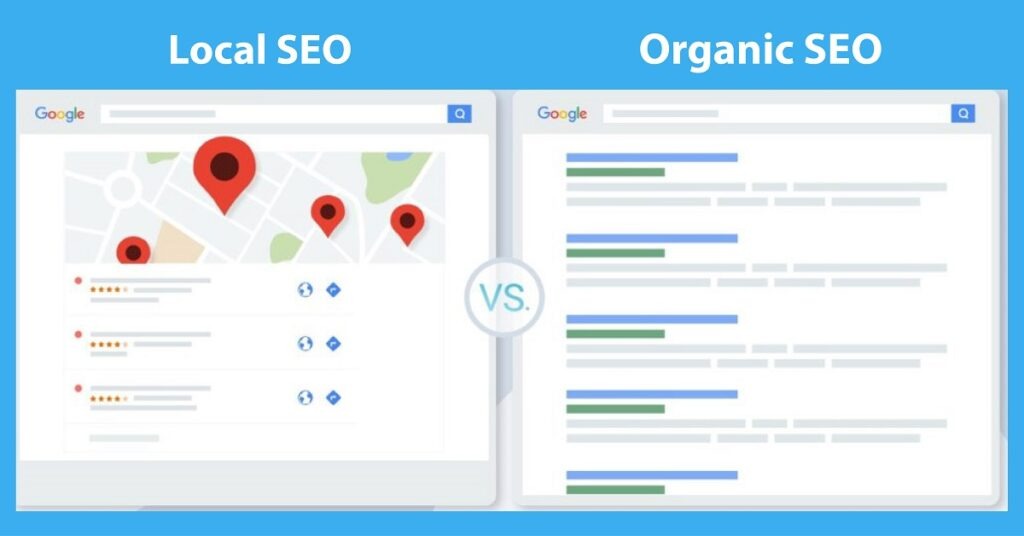Local SEO
Why do we need local SEO?
Local SEO can also help businesses to compete with larger national or international brands that may have more resources for general SEO.
When people search for products or services online, they often include location-specific keywords such as “near me” or the name of a city.
By optimizing their website and online presence for local search, businesses can increase their visibility to these potential customers.
By focusing on local search, businesses can target their marketing efforts and connect with customers who are more likely to become loyal, repeat customers.
Local SEO can be a cost-effective way for businesses to increase their online visibility and attract more customers in their local area.
To increasing online visibility and attracting potential customers, there are several other benefits of local SEO for businesses.
Here are some examples:
Increased website traffic: By optimizing for local search, businesses can increase traffic to their website from people in their local area who are searching for products or services.
Improved conversion rates: Local SEO can help businesses to connect with people who are more likely to become customers, resulting in higher conversion rates and better return on investment (ROI).
Better customer engagement: Local SEO strategies such as Google My Business listings and customer reviews can help businesses to engage with their customers and build relationships with them.
Competitive advantage: By optimizing for local search, businesses can gain a competitive advantage over other businesses that are not targeting their local area.
Cost-effective marketing: Local SEO can be a cost-effective marketing strategy for small businesses, as it allows them to target a specific geographic area without spending a lot of money on advertising.
Local SEO is an important marketing strategy for businesses that want to attract more customers in their local area and gain a competitive advantage over their competitors.

Increased brand awareness: By appearing in local search results, businesses can increase their brand awareness in their local area. This can help to establish them as a trusted and reputable business in the community.
Mobile optimization: Local SEO can help businesses to optimize their website and online presence for mobile devices, as many people use their smartphones to search for products and services while on the go.
Targeted advertising: Local SEO can be combined with other targeted advertising strategies, such as social media advertising, to reach potential customers in specific geographic areas.
Insights and analytics: Local SEO tools such as Google My Business provide insights and analytics that can help businesses to understand their customers better and make data-driven decisions.
Improved search engine rankings: By optimizing their website and online presence for local search, businesses can improve their overall search engine rankings, which can help them to attract more organic traffic and potential customers.
Local SEO is an effective and cost-efficient marketing strategy for businesses of all sizes that want to attract more customers in their local area, increase their online visibility, and gain a competitive advantage over their competitors.
Local SEO vs Organic SEO:
Which is the Best for Your Business?
Local SEO and organic SEO are two different strategies used in search engine optimization to improve the visibility and ranking of a website in search engine results. Here’s an overview of both:
Local SEO:
Local SEO focuses on optimizing a website to rank better in local search results, particularly for location-based queries. The goal is to increase visibility and attract customers from a specific geographic area. Local SEO is crucial for businesses with physical locations or those serving customers in specific areas.
Key aspects of local SEO include:
- Google My Business (GMB) optimization: Creating and optimizing a GMB listing with accurate and up-to-date information, including address, phone number, opening hours, and customer reviews.
- Local citation building: Ensuring consistent business information (name, address, phone number) across various online directories and platforms.
- Local keyword targeting: Incorporating location-specific keywords in website content, meta tags, and headings.
- Online reviews and ratings: Encouraging customers to leave reviews and responding to them promptly.
- Local link building: Acquiring backlinks from local websites and directories.

Organic SEO:
Organic SEO focuses on optimizing a website to rank well in organic (non-paid) search results. It aims to improve the website’s visibility, traffic, and overall authority in search engines. Organic SEO is essential for any website that wants to attract a broader audience beyond a specific locality.
Key aspects of organic SEO include:
- On-page optimization: Ensuring the website has high-quality, relevant content, optimized meta tags, headings, and URLs.
- Keyword research: Identifying popular and relevant keywords related to the website’s content and incorporating them strategically in the content.
- Technical SEO: Optimizing website structure, improving page load speed, ensuring mobile-friendliness, and fixing any crawlability or indexing issues.
- Link building: Acquiring high-quality backlinks from reputable websites to improve the website’s authority and credibility.
User experience (UX): Ensuring the website is user-friendly, easy to navigate, and provides a positive user experience.
While both strategies are important for a comprehensive SEO approach, the focus and tactics differ based on the specific goals and target audience of a website. Local SEO primarily targets local customers, while organic SEO aims for a broader audience and overall website visibility.






